QuestionQUESTION: I just purchased an 11 wk old female German Shepherd, I am doing the crate training with her. My question is...is it normal for a puppy at this age to pee & poop in her crate? I talked with the breeder and she told me this has never happened but over the last 4 nights I have had her she pees & the last two night's has pooped. I even got up at 1:30 am when I heard her whine & she had already pooped in her crate. I have never had a dog do this. HELP!!!!
Liz
ANSWER: Start with an exam at the vet's.
The problem could be the stress of being left alone. At 11 weeks, she is near the end when puppies are most receptive of new experiences. I am appalled at how many people breeding dogs are unaware of that and the importance of getting the puppies into their home closer to 7-8 weeks.
Make sure the crate isn't too big. She only needs room to stretch out in. Skip the bedding. At first it gets wet, and later it can be chewed into choking hazards. A wire grid in the bottom will help keep the puppy up out of accidents at first. They are available with the crates, but expensive and hard to find. A piece of closely spaced wire closet shelving from a home supply place is cheaper. I am now using a plastic vegetable bin with plenty of holes drilled in the bottom. It helps block off part of the crate for the smaller puppy. Before going to bed at night, take her out and walk around. Exercise stimulates elimination. Lavish praise on her if she does anything. I have found lying down in front of the crate like you were going to sleep and speaking softly to it, or singing, until it settles down and goes to sleep works very well. Follow the pattern, a period of active play, outside to eliminate, and then into the crate.
Bonding better to her may help too.
---------- FOLLOW-UP ----------
QUESTION: I am confused about you being appalled at how many breeders are unaware of & the importance of getting the puppies into their homes closer to 7-8 weeks?
Also, about the crate...are you referring to the grate that comes with many crates to make the interior smaller? Not to lay on so that if they wet it creats a barrier, a little confused at what you are talking about. Liz
AnswerThe behaviorists that have studied puppies all agree puppies must stay with their mother and litter until 6 weeks, but soon after then need as much exposure to new experiences as possible. Still many breeders insist on keeping puppies until they are 12 weeks old without providing the socialization they need to live in a home. Ask your breeder if the puppies were exposed to men and children? Vacuum cleaners? I know this is carefully covered in many of the books I have read including the Monks of New Skete's the Art of Raising a Puppy. I feel people should educate themselves on such topics before they go breeding and selling puppies. It is quite apparent that many breeders don't know or care how to produce quality puppies.
You can buy both dividers to reduce the size of a crate and grids to go on the floor. I have found it easier and cheaper to make my own. The grid really doesn't help solve the problem, it only makes it easier to cope with for the time being.
it is a good thing you didn't give up on me. I forgot to paste in important material on bonding and leadership. Her problem may be largely stress, and as she comes to realize you love her and will not abandon her, she can relax and wait for your return.
''Elevation for small puppies: Sit on the floor and gently put your hands around your pup's middle, below his front legs, and lift him up. He is facing you. Hold him for 15 seconds. Repeat until he no longer struggles. If he is past 10-12 weeks, lift his front feet off the ground, but don't pick him up.
Cradling for small puppies: Hold your puppy gently on his back, as you would cradle a small baby. If he struggles, hold him firmly until he quiets for 10-15 seconds. With larger pups, you can do this as your sit on the floor, with your pup between your legs.
Quiet lying down: Place your pup on the floor on his side, with all 4 legs pointing away from you. Use your hands on his neck/shoulder area and middle, to hold him in this position. When he is quiet, praise him. Lengthen the time that you keep him quietly in this position. When he accepts this position well, handle his paws and muzzle, while keeping him quiet.''
The quotes mean this isn't my original work. It is copied from my Puppy Raising Manual. I have long used these or minor variations of them, and they are very effective. You may want to give him a belly rub while he is on his back too. Helps bonding. There is a big difference between him rolling over and demanding a belly rub, and you choosing a time to roll him over and rub his belly. The latter cements your place as pack leader.

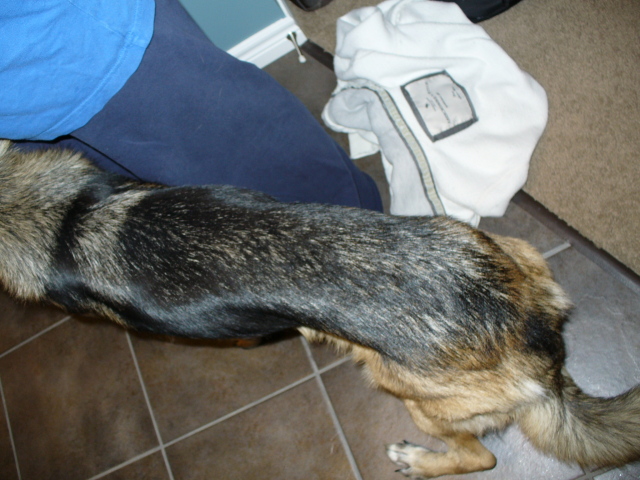 Very thin German Shepherd
Question
Sadie
Hi
We are having problems getting our
Very thin German Shepherd
Question
Sadie
Hi
We are having problems getting our
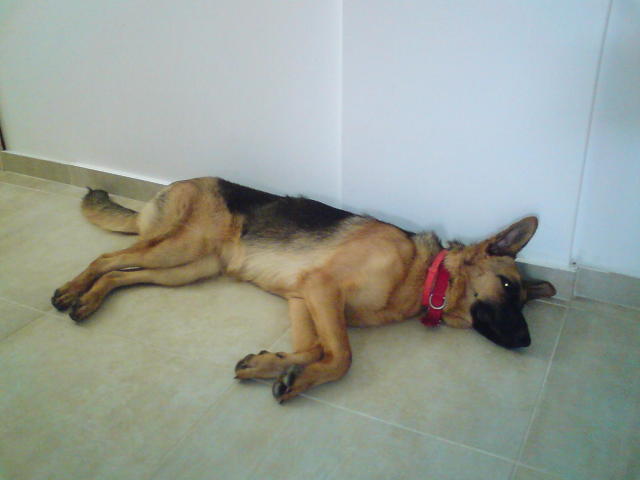 puppy growing thin and tall
Question
Lying down
Hi, I have a 9 month old German She
puppy growing thin and tall
Question
Lying down
Hi, I have a 9 month old German She
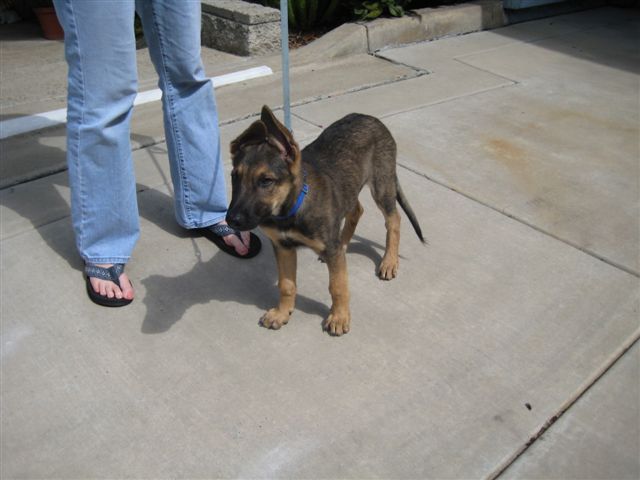 3 month old German Shepherd ears.
QuestionQUESTION: Hello and thank you for you time. I a
3 month old German Shepherd ears.
QuestionQUESTION: Hello and thank you for you time. I a
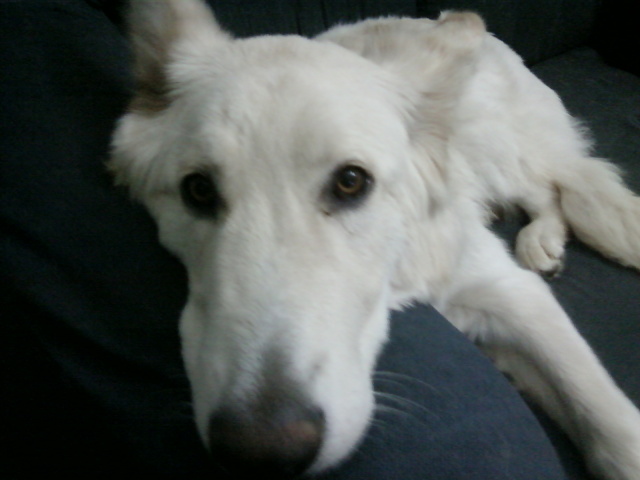 A traumatic experience
Question
Kelsie
Hi, we have two dogs and the second one
A traumatic experience
Question
Kelsie
Hi, we have two dogs and the second one
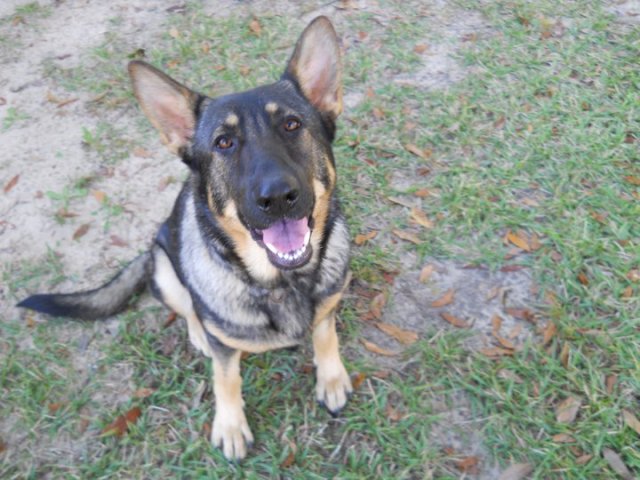 Training rescued German Shepherd
Question
Libby
My boyfriend and I have recently took in
Training rescued German Shepherd
Question
Libby
My boyfriend and I have recently took in